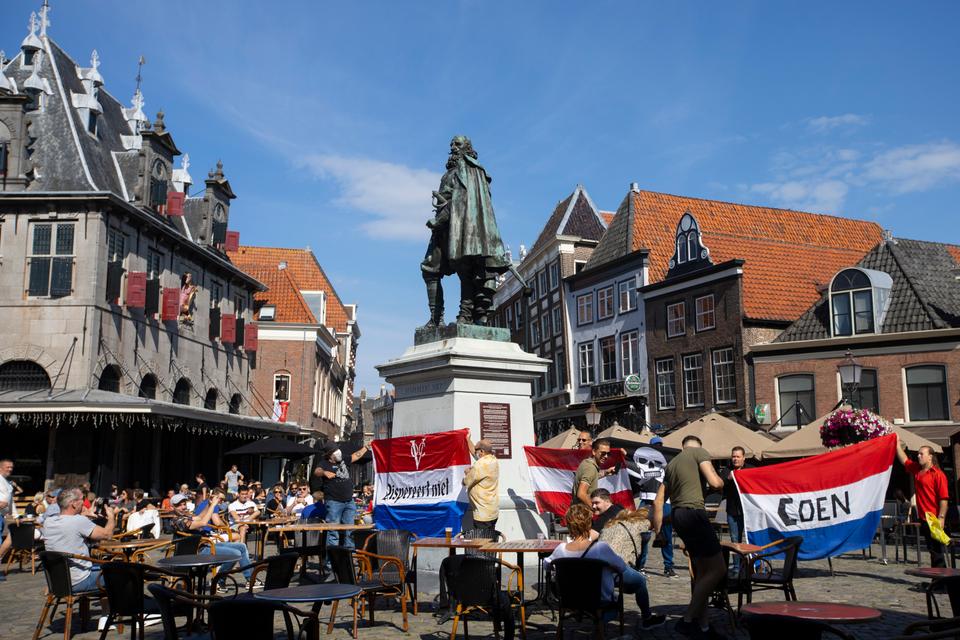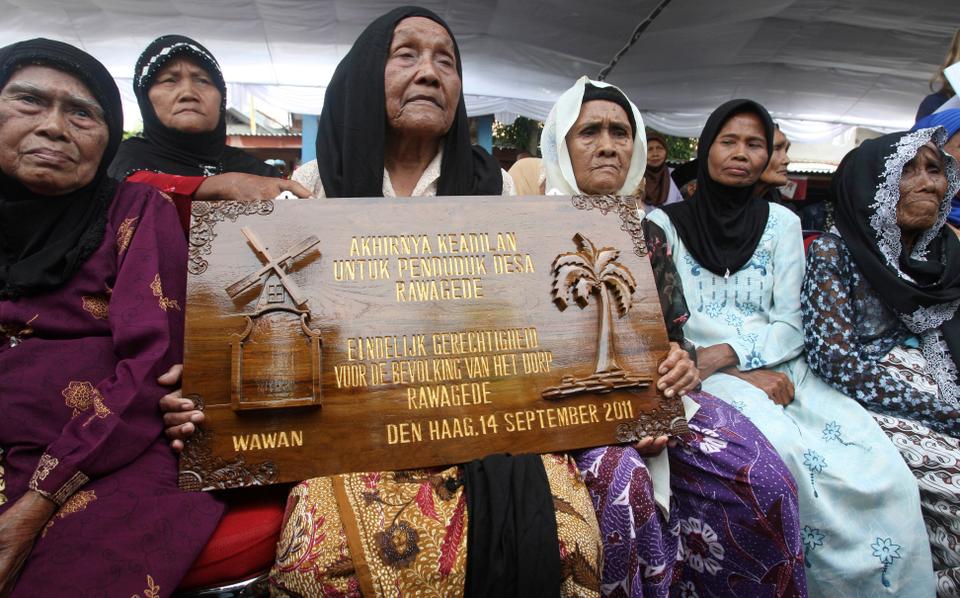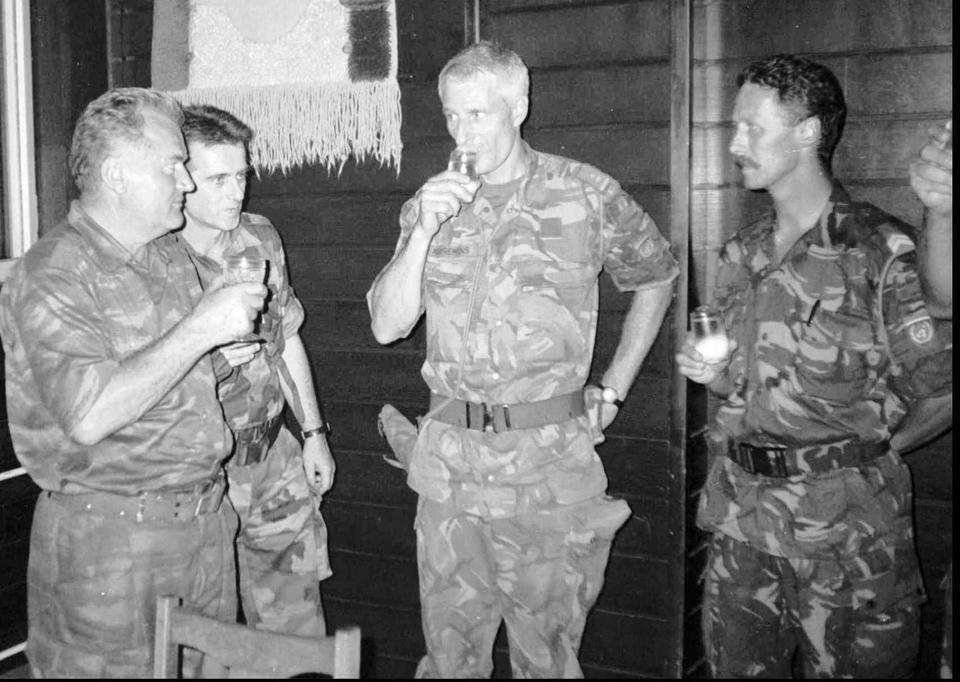As a former colonial power, the Netherlands not only profited from slave trade but also colonisation of countries like Indonesia, where the Dutch military committed war crimes.
Recently unveiled findings of a research funded by the Netherlands government has said that the Dutch military used excessive and deliberate violence against Indonesians in the 1940s, prompting Prime Minister Mark Rutte to apologise to its former colony.
The study found a “structural” Dutch violence against Indonesians, the world’s fourth most populous nation located in Southeast Asia, “in the form of extrajudicial executions, ill-treatment and torture, detention under inhumane conditions, the torching of houses and villages, the theft and destruction of property and food supplies”.
The Dutch army also used “disproportionate air raids and artillery shelling, and what were often random mass arrests and mass internment” against Indonesians during their independence war from 1945 to 1949, according to the report. The majority of Indonesians are Muslims.
“The Dutch armed forces as an institution were responsible for the violence used, including the extreme violence. However, they operated in close consultation with and under the responsibility of the Dutch government,” the research added. Tens of thousands of Indonesians were killed by the Dutch military during the war.
Following the release of the report, the Dutch Prime Minister issued an apology to Indonesians: “I would like to make a deep apology on behalf of the Dutch government to the people of Indonesia today.”
Rutte also criticised his predecessors for “the consistent way previous Cabinets looked away” from the systematic Dutch violence in Indonesia. But in the past, the same Rutte had also refused to fully recognise the past atrocities of Dutch military leaders in the South Asian country, which comprises more than 17,000 islands.
In the 17th century, nearly the entire population of the Banda Islands—thousands of people—was killed by Dutch colonial forces led by Jan Pieterszoon Coen, a military leader Rutte still wants to celebrate as a national hero for his contribution to expanding territories of the Netherlands.

What Rutte really thinks
In 2018, when some liberal Dutch wanted a statue of Coen, which still stands in his Dutch homeland of Hoorn, to be removed for his past brutal conduct, Rutte came to the rescue, saying that Coen was “a visionary” leader. Rutte urged critics of Coen to “be careful to judge” the colonial officer “with our current day conceptions”.
In mid-2020, Rutte refused to issue a formal apology for the country’s role in the slave trade.
Rutte is not alone in his thinking. Half of the Dutch citizens found colonialism a source of pride in a 2019 survey which found that only 6 percent of the respondents viewed it as shameful. Even more than half of Dutch citizens polled described the country’s colonial conduct as something beneficial to colonised populations.
It’s a view, which almost corresponds to the approach of the country’s colonial rulers, which saw their occupation of foreign lands like Indonesia as a “civilising mission”, ultimately considering themselves members of a superior culture and civilisation. This view has also been one of the root causes of modern racism and xenophobia.
The Netherlands used to call most of the current Indonesian territories Dutch East Indies, which became its colony in 1796 after the country nationalised trading posts of the Dutch India Company across the region. But the Dutch presence through trade posts in Indonesia goes back to four hundred years ago.
Like the other European colonial powers—including UK, France, Spain and Portugal—the Dutch also colonised some parts of South Asia, Africa and the Americas. Events like the Khoikhoi massacre in South-West Africa in the 17th century is one of the worst stains that continues to haunt both Africans and the Dutch nation.
Compared to other colonies, the Dutch military also unleashed special brutality on Indonesians during its colonial rule.

Between 1899 and 1909, Dutch colonial governor J.B. van Heutsz killed at least 22,000 natives of the country. Like Coen, Heutsz also still has a statue in the Netherlands.
During the Indonesian Independence War in the late 1940s, the Dutch military was equally suppressive and brutal. A Dutch regiment under the command of Raymond Westerling killed 3,500 Indonesians in late 1946 in the island of Celebes.
After the war, Westerling was uncharacteristically confident that his brutal conduct could not be prosecuted by the Dutch government while openly accepting that he committed war crimes. Even in the 1970s, despite the fact Westerling publicly expressed that he executed Indonesian war prisoners, the country’s judiciary did not move to prosecute him.
All these brutal conducts of Dutch and their continuing influence over the former colonial power’s citizens bring to mind the failure of the country’s military in the Bosnian War in the 1990s.
The Dutch failure in Bosnia
In 1995, at the height of the Bosnian war, the Dutch military’s UN peacekeeping forces in Bosnia was deployed to Srebrenica in order to protect Muslim Bosniaks against Serbian atrocities.

Instead, the unit, which was called DutchBat III, decided to evacuate a compound where 25,000 Bosniaks took refuge, allowing Serbs to massacre more than 8,000 Muslim men and boys.
In 2019, the Dutch Supreme Court decision upheld a previous ruling that the country’s troops are partially responsible for the deaths of Bosniaks in Srebrenica.
But like Rutte’s recent apology toward Indonesians, almost all of whom already passed away, the Supreme Court decision appeared to make a little change in the Dutch understanding of the Bosniak deaths.
According to Dutch researchers, school textbooks barely mention the word “genocide” in relation to the Bosnian war and does not talk about the Dutch military’s responsibility in the Srebrenica massacre. Some members of the Dutch military’s Srebrenica mission accuse the UN for its failure of the protection of Bosniaks.
Many Dutch citizens also have no idea what happened to Muslim Bosniaks in the brutal war, researchers also found. While Dutch army veterans like Westerling could speak about his war crimes in Indonesia, drinking his whisky, with impunity, people paradoxically find it so hard to talk about Srebrenica in the Netherlands.
“It’s still very difficult to talk about Srebrenica,” said Marc van Berkel, a researcher, who studies historical context in Dutch school texts, referring to the country’s take on the Bosniak tragedy.
Social media is bold.
Social media is young.
Social media raises questions.
Social media is not satisfied with an answer.
Social media looks at the big picture.
Social media is interested in every detail.
social media is curious.
Social media is free.
Social media is irreplaceable.
But never irrelevant.
Social media is you.
(With input from news agency language)
If you like this story, share it with a friend!
We are a non-profit organization. Help us financially to keep our journalism free from government and corporate pressure












0 Comments